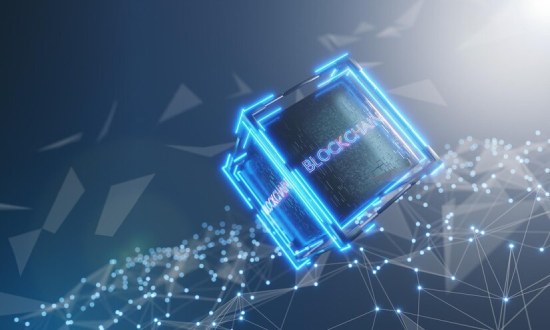-
In this blog, we dive deep into the essential factors involved in developing a market-leading NFT marketplace. We'll explore why decision-makers should consider leveraging Ethereum blockchain development services for building a robust and scalable platform. As the go-to blockchain for NFTs, Ethereum offers a proven and secure foundation to create a seamless, user-friendly marketplace. To learn more about how you can build your own NFT marketplace, visit Oodles Blockchain's NFT Marketplace Development Services
Why Choose Ethereum for NFT Marketplace Development
NFT marketplaces built on the Ethereum blockchain enable users to effortlessly trade NFT. It is because ERC-721 and ERC-1155 are the two main token standards for NFT and NFT marketplace development on Ethereum. The ERC-721 standard, which is now the most popular, efficiently establishes the minimal data—such as ownership information and security—necessary for network transactions. With ERC-1155, creation, and storage are less expensive. One of the first blockchains for NFT development was Ethereum. Indeed, the first Ethereum-based NFT collections, CryptoPunks, and CryptoKitties, both from 2017, were the ones that popularised NFTs and grew the market. NFTs originally debuted on Ethereum in 2015–2016. As a matter of fact, major marketplaces for several NFT collections, games, or metaverse initiatives run on Ethereum-based marketplaces. Examples include the marketplaces like CryptoPunks, Decentraland, and Axie Infinity. Other online markets also provide consumers with NFTs in all niches, such as collectibles, art, sports, metaverse, gaming, etc. Also, Explore | A Quick Guide to Ethereum ERC Token Standards
Why is Ethereum the Blockchain that the NFT Marketplace should use?
Some of the most well-known NFT marketplaces, including Opensea, Rarible, and Larva Lab, run on Ethereum. Now, let's discover the benefits of creating NFT marketplaces on Ethereum, such as Opensea and others.
Secure and Discreet Transactions
Ethereum enables the development of secure transaction layer private consortiums. In such consortia, the confidential information is encrypted and never broadcast to users of ConsenSys Quorum. Thus, it manages the NFT NFT market more efficiently.
High-Performance
In comparison to the open mainnet, consortium networks perform significantly better. Depending on the network configuration, it is capable of 100 TPS. Consortiums more importantly ensure the smooth operation of Proof of Authority consensus, programmable block time, and gas limits.
Distributed Data Management
Data is distributed through a decentralized design to foster trust. Hence, it does away with a user's reliance on a central organization to run a system and carry out transactions. Subsequently, the Ethereum market can operate more quickly and effectively.
Fast and Secure Deployment
Once a dApp is live on the platform, it is made available to all network nodes. Further, they are able to quickly manage transactions such as exchange, mining, and storage on Ethereum.
Public but Permissioned Networks
Through the open-source protocol layer ConsenSys Quorum, businesses can create their setup on a public Ethereum network. They will be better able to satisfy upcoming security and regulatory needs. This benefits the marketplace significantly. They can operate transparently and avoid unneeded regulatory restrictions.
Growing Scalability
The Ethereum mainnet is a clear example of a network operating with several nodes and millions of users, in contrast to other blockchain networks that operate on a small number of nodes with no room for future expansions. Scalability-wise, Ethereum is the best option for expanding NFT marketplace projects. Also, Visit | Ethereum Smart Contract Development | Discovering the Potential
Technology Required for NFT Marketplace Development on Ethereum
Ethereum
The blockchain has the highest adoption rate for NFT markets. It keeps track of the NFT IDs and links them to the associated digital assets.
Gas station ETH
A facility for information on the transaction costs for Ethereum.
Golang
A programming language used for the NFT marketplace's back-end development.
Solidity
It is a smart contract programming language.
LevelDB
It is a database for quick access to the blockchain.
AWS S3
It is a cloud database that offers several storage types for various data quantities.
Web3.js
It is a crucial JavaScript library for establishing connections to the Ethereum network.
Truffle
It is used for evaluation and rolling out customized dApps and Ethereum smart contracts.
Ganache
It is used in conjunction with nearby test nodes to validate the implementation and communication of smart contracts.
Node.js
It is a program that natively runs backend or Java apps on Ethereum.
React.js
It is a front-end development language that is open-source and free.
Metamask
It is a digital currency wallet for trading Ethereum tokens. Keys for the cryptocurrency Ethereum are also kept there. You may also like: It's Time for Real Estate NFT Marketplace Development
Additional Services
CoinMarketCap
It is a service that keeps track of cryptocurrency prices.
Infura.io
It gives access to the Ethereum blockchain through a service.
Selecting the Best Partner for Ethereum Blockchain Development
Connect with our Ethereum blockchain experts for professional advice and development services. At Oodles, we provide efficient NFT marketplace development on the Ethereum network.

Our Offices
INDIA
Emaar Digital Greens, Sector 61,
Gurugram, Haryana
122011.
Welldone Tech Park,
Sector 48, Sohna road,
Gurugram, Haryana
122018.














